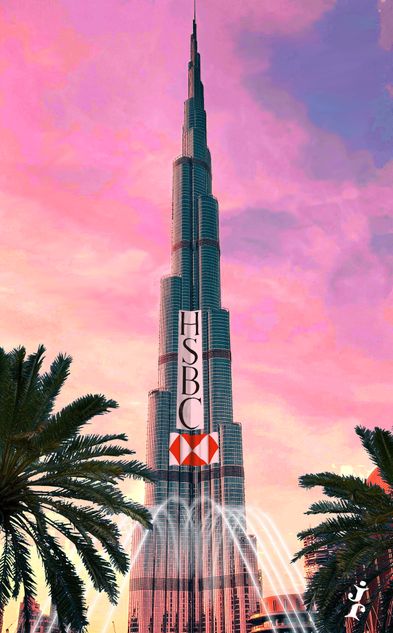Middle East Bond House: HSBC
Scaling the heights
It didn’t transact the most deals, nor did it have the biggest market share by volume. But HSBC’s portfolio of transactions comprised the biggest, most diverse and at times the most original. HSBC is IFR’s Middle East Bond House of the Year.

Leadership comes in many forms. But if it’s having the top role on the biggest transactions then HSBC in the Middle East ticks that box. If it’s showing issuers to new markets, then ditto. If it’s bringing debut names ... you get the picture.
HSBC wasn’t number one in IFR’s Middle East league table. It wasn’t a global coordinator on the most deals. It didn’t have as many structuring roles as a rival bank.
But what it did do was act as global coordinator on almost every big transaction from the region – the deals that every bank wants to be on.
It was, for example, global coordinator on Qatar’s green debut, on all three of Sharjah’s deals (including as sole global coordinator on one), on Saudi Arabia’s US$12bn offering, on two of Public Investment Fund’s transactions, including its debut in sterling, on ADQ’s debut offering and on Bahrain’s conventional and sukuk dual-tranche offering.
At the other end of the scale, it was a global coordinator on real estate company Binghatti Holding’s sukuk – a debut transaction from a high-yield corporate.
“The leadership point has been answered this year,” said Khaled Darwish, head of CEEMEA debt capital markets.
Take PIF’s sterling deal. “It’s a really interesting story,” said Adam Bothamley, global head of debt capital markets. “They have a reasonably sized programme, as a sophisticated borrower focused on diversification.”
The Saudi wealth fund raised US dollars in the conventional bond and sukuk markets in 2024. But it was the sterling trade that showed something different. As a fund with UK assets, notably Newcastle United Football Club, it made sense from a strategic point of view to issue in sterling.
What emerged was a £650m dual-tranche transaction comprising £300m June 2029s and £350m June 2039s. The final landing points also offered minimal pickups over PIF’s US dollar curve.
The deal underscored HSBC’s ability to take issuers to different markets. “[In 2024] the story was more than just about a growth in volumes,” said Darwish, referring to the region. “It was also currency diversification.”
In another example, HSBC was a global coordinator on Sharjah’s €500m 6.5-year sustainable bond, the first ESG-labelled euro bond by a sovereign in the region. The emirate has had to lean heavily on debt markets in recent years but almost all of its international issuance had been in US dollars.
In terms of achieving its goal of diversifying its investor pool and easing pressure on its US dollar funding base, the transaction was a success. Only 13% of allocations went to Middle East accounts and 12% to US funds, while European investors took 37% and UK investors 36%.
Labelled bonds continued to be a growing theme in the region in 2024 and HSBC was involved in the top line on arguably the two most significant deals – Qatar’s green debut and Emirates NBD’s sustainability-linked loan financing bond.
Qatar’s US$2.5bn transaction, its first international bond offering in four years, comprised US$1bn green May 2029s and US$1.5bn May 2034s. The five-year green bond came at a record tight spread, pricing at 30bp over Treasuries.
Qatar's deal in May was the first with a green label by a state from the Gulf Cooperation Council, although Sharjah issued a sustainable bond in February, with proceeds going towards green and social projects.
ENBD’s US$500m five-year deal was fully aligned with new International Capital Market Association/Loan Market Association guidelines.
In high-yield, the standout transaction was Binghatti's US$300m three-year sukuk. Binghatti – which is based in Dubai and focuses on residential property – helped to demonstrate that for the right price there is demand for Single B UAE real estate risk. Pricing was fixed at 9.625% for the Single B rated issuer.
HSBC’s leadership was also on display when it was sole bookrunner on a US$205m 7.50% December 2028 senior secured sukuk for Emirates REIT.
In a rare example of senior secured sukuk, Emirates REIT’s Index Tower and European Business Centre properties featured as security. HSBC worked through its private credit and DCM teams, indicating that the capital was provided by private credit firms as well as other sukuk investors. There was no public bookbuild for the deal.
To see the digital version of this report, please click here.
To purchase printed copies or a PDF of this report, please email leonie.welss@lseg.com






